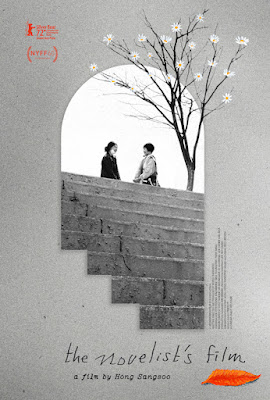Even though Hong Sang-soo is a film director, he seems to believe actors are the dullest people in the world. Once again, he apparently sets out to prove it with his latest film. Supposedly, this is a film about coincidence, but the not so ironic happenstances are weak and tangential in Hong’s In Our Day, which is now playing in New York.
Sang-won is an actress, who is crashing with her friend Jung-soo and Jung-soo’s cat Us, now that she has returned to Korea after a long absence. Hong Uiju is a poet who lives alone, since the death of his cat. That is really a shame for the poet and the audience, because Us is probably the most interesting character in the film.
Today, both will be visited by aspiring thesps, who supposedly want to ask them big meaningful questions. However, when Ji-soo and Jae-won try to get out the words, they sound pretentious and inarticulate. Sang-won and Uiju also eat ramen with red chili paste. Yes, that is a big deal in this film. Perhaps you can understand why Us eventually runs away from home.
Maybe Hong was trying to recapture the inspiration of his best films, Hill of Freedom, Yourself and Yours, and Right Now, Wrong Then, which slyly riffed on doubling motifs, while employing hip bifurcated structures. If so, he was really forcing it. Unfortunately, his shallow and annoying characters need even more work than the skeletal narrative.
Frankly, In Our Day feels more like an improv workshop than a proper film. Perhaps the only memorable dialogue comes when Sang-won explains to her cousin Ji-soo how she never felt she ever gave an honest performance, because she knew her directors always wanted a predictably safe canned response. Kim Min-hee (often referred to as Hong’s “muse”) delivers this pseudo-monologue with such earnestness, perhaps it should tell the director something.










